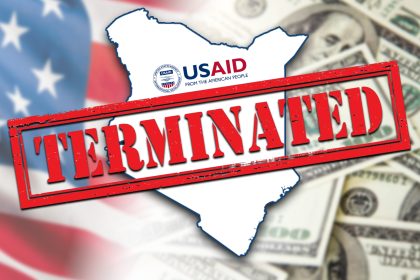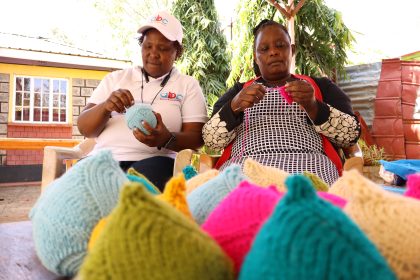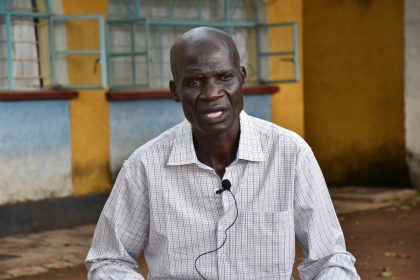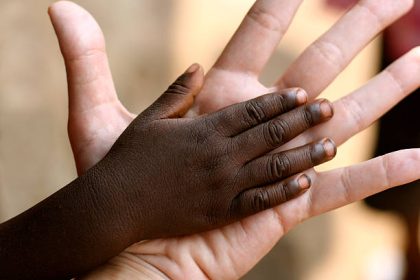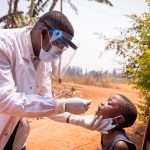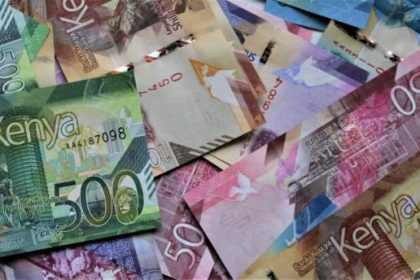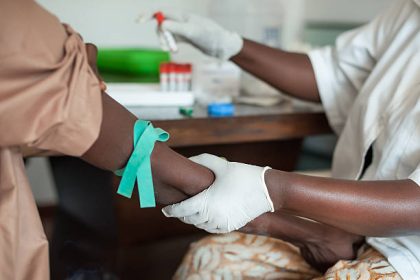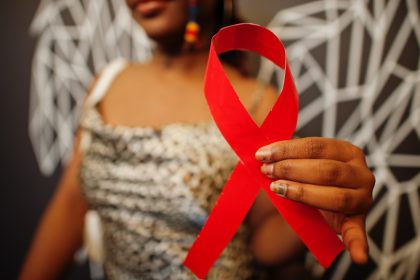Jennifer Mukali, a peer educator at a donor-funded project, now sells clothes, her side hustle before USAID was shut down.
For six years, Amelia Wendy dedicated herself to grassroots outreach, working tirelessly to support people living with HIV/AIDS and tuberculosis (TB).
Her daily routine as an Outreach Officer involved engaging with individuals struggling to access government healthcare facilities for their HIV and TB medication. She often worked beyond regular hours, relying on motorbikes, vehicles, and even walking long distances to reach clients in remote and inaccessible areas.
At times, she braved bandits at night as she navigated the red-light districts of Kakamega County, covering the five constituencies she served.
“It had become a part of me,” she told Willow Health. “No two days were the same. I would crisscross between Lurambi, Shinyalu, Malava, Likuyani, and Lugari, where I was also responsible for recruiting and training peer educators on HIV and TB management.”
Amelia worked on HIV and TB prevention, treatment, care, and support programs under the Kenyan AIDS NGOs Consortium (KANCO), which was funded by the United States Agency for International Development (USAID).
The funding aimed to strengthen civil society organisations (CSOs) and foster collaboration to ensure universal healthcare access.
I never imagined it could end so suddenly…I thought an exit plan would be in place
The mother of three considered herself better off than her peers working in the Kenyan government. Her salary was competitive by international standards. Perks included per diems and reimbursement for out-of-pocket expenses.
The US government, however, froze all foreign assistance before shutting down USAID.
“I never imagined it could end so suddenly,” she says. “I thought an exit plan would be in place, at least for a year, to help beneficiaries and employees transition smoothly. Everything USAID had done before had a sense of order, but not this time… leaving us with little hope.”
Wendy, like her colleagues, received a brief notification via office email and their job WhatsApp group, temporarily suspending their duties in February.
“Following the directive from USAID, KANCO Kakamega Drop-in Centres (DICE) shall pause all activities until America makes a decision. The pause will last for three months. Further communication will be shared,” read part of the message from Carlin Alusa, the team’s project coordinator.
The message came swiftly on the heels of a general communication from the USAID Senior Procurement Executive, which had been posted on the office notice board, calling for the immediate suspension of all procurement services midway in line with US President Donald Trump’s infamous order halting all USAID programmes.
We had to bail out one of our peers who owed Ksh7,000 to a photocopy shop
Before signing the January 20 executive order, President Trump wrote on his Truth Social page that USAID’s expenditures are “TOTALLY UNEXPLAINABLE… CLOSE IT DOWN!”
The effect of USAID shutdown saw employees under their programmes losing their jobs and projects stalling.
In the Kakamega satellite office in Africa—which had been serving hundreds—some of Wendy’s colleagues were still awaiting reimbursement for field expenses.
“We had to bail out one of our peers who owed Ksh7,000 to a photocopy shop that had provided him with services,” she says. “What we are focused on at the moment is to follow up on our pending payments and help one another move on.”
Jennifer Mukali, a peer educator at the Kakamega DICE, says her job involved “counselling targeted populations, distributing protective supplies, ensuring they adhered to ARV treatment, conducting viral load tests, and facilitating cancer screenings.”
Mukali, who has seven years of experience working with people living with HIV and TB, has since shifted to running a clothes business, which had been her side hustle until the Trump order.
She told Willow Health she’d always been a businessperson at heart but took the job for the financial stability it offered as a USAID-funded organization and “I don’t think life will ever be the same again since our offices in Kakamega Town were shut down, and furniture and equipment moved to Nairobi.”
It’s like the sudden death of a family breadwinner
Another colleague, Patrick Odiwuor, a senior Outreach Officer at KANCO took the news of the shutdown with measured composure, but reckons, “The full impact—especially on the program’s beneficiaries—is yet to be felt. Give it two more months.”
He likens the USAID funding withdrawal to the sudden death of a family breadwinner.
“In my experience managing HIV and TB programs, I’ve seen NGOs do the heavy lifting while public healthcare facilities handle other diseases. But even then, these facilities lack the manpower and essential drugs to sustain the ‘USAID orphans’ left behind.”
He recalls how some clients, unaware of Trump’s orders, wonder why offices were shut down and outreach sessions halted and “We tell them to seek help at public hospitals as we wait for further instructions from the donor,” he said adding that former employees reconnect via WhatsApp groups and sharing job alerts “as hope for the donor resuming funding fades by the day.”
Interestingly, the workers were not in a union that could advocate for their welfare, as “You only join a union when you’re underpaid or dealing with a problematic employer,” said Odiwuor. “USAID was not one of them.”
USAID workers sued the Trump administration, calling the shutdown “unconstitutional and illegal”
He adds: “Most of my former colleagues are struggling emotionally. They can’t even send an email through their office system anymore and have nowhere to turn—not even the Kenyan courts—since the program was suspended at the source.”
February 6, 2025, US unions representing USAID workers sued the Trump administration, calling the shutdown “unconstitutional and illegal” after thousands were put on leave globally.
The lawsuit resulted in a court order temporarily blocking USAID from placing an additional 2,200 workers on paid leave.
But in Kenya, Wendy says former USAID workers now share job openings on social media platforms and “That way, we might secure a job and recover from the stress that comes with unemployment.” Kakamega County Health executive Peninah Mukabane pledged that “if things don’t return to normal”, the county might fill the gap left by USAID services “even if it means hiring additional staff.”




